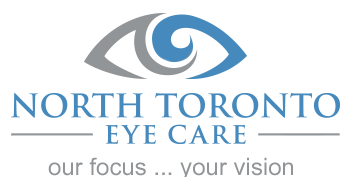Many people take their vision for granted. While some degree of vision degradation over the years is considered par for the course, not many people think about how their lives can be affected by vision impairment. Unfortunately, severe vision impairment is more common than you may think. Life with impaired vision is a reality for more than 1 million Canadians.
The Reality of Vision Loss in Canada
Sometimes it can be hard to grasp the reality of a situation without seeing some numbers. Here are some fast facts about vision loss in Canada that may help paint the picture:
- Vision loss in Canada wracked up an estimated $15.8 billion bill in 2007
- Every 12 minutes, a person in Canada becomes visually impaired
- Currently, more than 2.5 million Canadians are living with cataracts. That number is expected to rise to 5 million by 2031
- In Canada, more than 350,000 cataract surgeries are performed each year
- Cataracts are the second leading cause of blindness in Canada
Cataract Surgery and Stopping Vision Impairment
Cataracts are the second leading cause of blindness and vision impairment in the world. Millions of Canadians are living with cataracts, and good portions of those people are blind. Does it have to be that way?
Cataracts, in almost all cases, are completely treatable. Modern cataract surgery is a safe, routine procedure performed on thousands of Canadians each year. Many people still think of cataract surgery as it was decades ago, requiring a lengthy recovery and hospital stay. We are happy to say that this is no longer the case, and that cataract surgery is easier and more accessible than ever.
Here are some common questions about cataract surgery:
Q: Do I have to stay at the hospital for cataract surgery?
A: No! In the past, cataract surgery required patients to stay at the hospital overnight to be monitored. However, cataract surgery today is no longer an in-patient procedure. Modern cataract surgery can be done in less than an hour, and you can go home directly afterward. Thanks to modern cataract surgery methods, cataract surgery is no longer the hassle it used to be.
Q: Are cataract removed by lasers?
A: During cataract surgery, a method called phacoemulsification is used to remove the cataract. It is easy to confuse this with the use of lasers, but it does not require lasers. During phacoemulsification, ultrasonic energy is used to break up the cataract to make it easier to remove. Lasers can, however, be used to assist in making the corneal incisions necessary for cataract surgery.
Q: Will I be awake during cataract surgery?
A: Yes. This may seem scary to some, but we assure you that cataract surgery is quick and painless. Aside from that, you will receive “twilight sedation” which means you will be half-awake, kind of like how you feel when drifting off to sleep. You will feel relaxed and unworried. Your doctor will use topical anesthesia, so you will not be able to feel what is going on.
Laser Vision Correction and Vision Loss
Q: Is laser vision correction safe?
A: Since 1991, laser vision correction surgery has been performed in Canada, helping millions to see their best. There have been numerous clinical trials and studies proving the safety and effectiveness of LASIK surgery. Over the years, LASIK technology has advanced to the point that complications are exceedingly rare.
Q: Can LASIK correct astigmatism?
A: Yes! LASIK can correct astigmatism, as well as other common refractive errors like myopia and hyperopia. Modern LASIK technology allows doctors to treat astigmatism with extreme accuracy and can treat even the most complicated cases with precision and safety.
Vision loss and blindness due to cataracts is an unfortunate reality for many Canadians, but it doesn’t have to be. Have more questions about cataract surgery or laser vision correction? Contact North Toronto Eye Center to schedule a consultation today!
